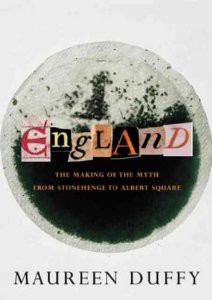I generally only review books that I would recommend. However, all rules are made to be broken. You’ll see why.
As the author of a book on some of the odd habits of the English over the centuries, I’m naturally professionally curious about anybody else’s take on the same theme. Duffy is a poet as well as a novelist, and not surprisingly is strong on the influence of poetry on the English idea of themselves. She covers an enormous range of history (from before the English arrived to the present) in a small, novel-sized book. She brings undoubted skills to her ambitious task, as well as an informed outsider’s eye (she’s a radical campaigner with an Irish father, but has lived all her life in England) and a liberal leftist point of view.
The book is not without interest, and some enjoyably wry observations:
“Our gardens involve us in no embarrassing intellectual or artistic decisions. With nature, even our version of stylized nature, we can’t go wrong. Our plots are little stages on which we are the only players, making three-dimensional installation art as the stage designer does with a maquette and the final set.” (p. 149)
(for another quote from the book, see Paradise lost…)
But it’s a bumpy ride. If you’re going to talk about myths you need the olympian detachment of a Greek god (not that Zeus and co. were particularly objective): or else you need to be aware that you’re taking sides, and be witty and elegant about it; not something that Duffy manages. And if you’re going to gallop through history, you had better avoid sounding (as Sean O’Brien spikily remarks in The Guardian‘s review) like 1066 and All That. The pace, too, is noticeably uneven: after galloping through a period’s history in a paragraph, Duffy will devote a whole page to a lengthy extract from a poem and comments on it. The book, in short, falls down in several ways at once.
On gardening, for example – one area where Englishness and Nature intersect – she wrongly supposes that the ‘wild garden’ is an early 20th century invention, ignoring its 18th century roots in the influential show-off aristocratic grounds of Chiswick House and Stowe. If you’re going to give instant thumbnail sketches of a thousand complicated stories, you do rather need to get to the bottom of each story before you try to summarize it.
Buy it from Amazon.com (commission paid)
Buy it from Amazon.co.uk (commission paid)

